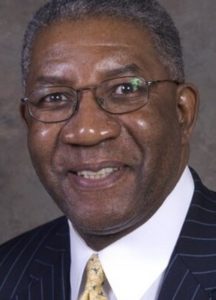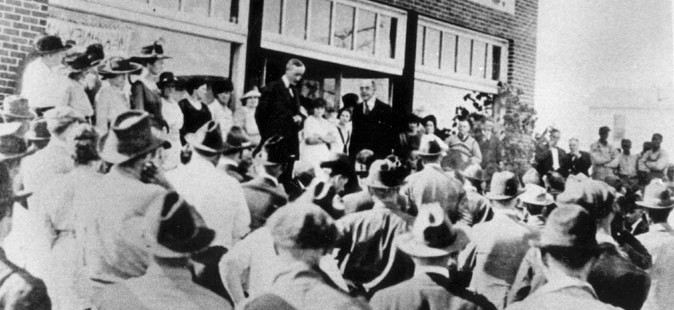Black History Month has ended for 2021. This year during Black History Month the Public Broadcasting System aired a four-hour documentary, produced by Henry Louis Gates, about the Black church. Across the nation, people paid tribute to the contributions by Black inventors, artists, public servants and others across United States history. In many ways, it was an uplifting time.
In other ways, Black History Month 2021 was a painful time.

Wendell Griffen
This year, during Black History Month, the U.S. surpassed the grim toll of 500,000 lives lost due to COVID-19. A disproportionate number of the dead are Black people. A disproportionate number of the people who face hurdles obtaining vaccination for COVID-19 are Black people.
This year, during Black History Month, the U.S. Senate refused to convict Donald Trump of inciting a Jan. 6, 2021, deadly insurrection against the U.S. Congress based on false claims about voter fraud after he lost his bid for re-election.
This year, during Black History Month, Republican senators and members of Congress demonstrated, again, their preference for lies and violence against the votes of Blacks and other persons of color.
This year, during Black History Month, white state legislators introduced bills aimed at restricting voting rights guaranteed to citizens of the United States by the Fifteenth Amendment to the U.S. Constitution and the Voting Rights Act of 1965 — measures that became law to redress discrimination against Black people.
This year, during Black History Month, the University of Arkansas — the flagship institution of higher education in my home state — did not rename Brough Commons, one of the largest dining facilities on its main campus, in memory of the hundreds of Black victims of the Elaine Race Massacre of 1919, the worst incident of racial violence in Arkansas history. Brough Commons is named, instead, after former Arkansas Gov. Charles Brough, who accompanied 500 troops by train from Little Rock to Phillips County, Ark., and ordered the troops to shoot to kill Black men, women and children.
“This year, during Black History Month, white state legislators introduced bills aimed at restricting voting rights guaranteed to citizens of the United States.
This year, during Black History Month, white politicians who claim to be followers of Jesus objected to education about the way white supremacy has influenced public policy, education, crime and punishment, religion and economics in the United States.
This year, during Black History Month, white legislators in Washington opposed Biden administration cabinet nominees who are women of color (African American, Asian American, Native American).
This year, during Black History Month, a grand jury refused to return an indictment against any of the four Rochester, N.Y., police officers involved in the brutal treatment of Daniel Prude, a mentally ill Black man who suffocated while in their custody.
And this year, during Black History Month, white pastors, religious educators and members of congregations that profess to follow Jesus continued their disregard for the biblical mandate of repentance for transgressions of the commandment to love their Black neighbors as themselves.
Perhaps we will never know why administrators at the University of Arkansas are hesitant about renaming Brough Commons. Perhaps they are admirers of Brough’s role in the Elaine Massacre. Perhaps they are beholden to donors who endorse Brough’s role or who are hostile to the demand of Elaine descendants for reparatory justice. Perhaps their hesitancy stems from endorsement — whether consciously or not — of white supremacy, including racialized violence to maintain white supremacy. Perhaps they do not perceive a reason to act sooner to rename a dining facility after Black victims of the worst racial violence in Arkansas history.
Perhaps the University of Arkansas will someday tell us. Perhaps not. What is clear, however, is that the flagship institution of higher education in Arkansas continues each day to place higher regard on the memory of Charles Brough, the white governor who was complicit in the Elaine Race Massacre, than to all the Black victims of that travesty and their descendants.
Perhaps we will never know why white pastors, religious educators and members of congregations seem more comfortable ignoring racial injustice — or worse, participating in it — than repenting about it and working to repair the harms and remedy the losses associated with it.
Perhaps we will never know why they seem undisturbed when unarmed Black men, women and children are slaughtered by government agents with impunity.
We may never know the reason for white complicity and tolerance for any of these injustices.”
Perhaps we will never know why they are quick to treat voting by the descendants of enslaved Africans as fraudulent.
Perhaps we will never know why they are offended by women and men of color holding positions of political power.
We may never know the reason for white complicity and tolerance for any of these injustices. That lack of knowledge does not make the complicity and tolerance excusable. Nor does it mean we should forget or overlook it, during Black History Month or at any other time.
Whether or not we know why white people who profess to follow Jesus are complicit in or perpetuate white supremacy and racial injustice, we should know that people of color are watching the complicitous and endorsing behavior. Black people and other people of color are watching and waiting for evidence of repentance from white people about racial injustice. They are asking, in 2021, the same question Martin Luther King Jr. expressed about white religious people in his 1963 Letter from Birmingham Jail: “Who is their God?”
And we should know that God is watching and waiting, with people of color, for evidence of repentance by white people who profess to love God and love their neighbors.
God knows repentance is not happening. God knows it is inexcusable. God will not forget it.
I ponder that truth, among others, every year during Lent, after Black History Month.
Wendell Griffen is an Arkansas circuit judge and pastor of New Millennium Church in Little Rock, Ark.

